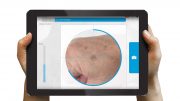Marie Loizides, associate director of performance analytics at Barking, Havering and Redbridge University Hospitals NHS Trust, explains how switching to digital referrals has reduced waiting times by over a month.
There are few people in the UK who could have escaped the many headlines around the mounting pressure on the NHS nor the ever-increasing waiting list backlog. The impact of the pandemic, staffing issues and funding have all taken their toll.
However, it is important not to lose sight of the fact that significant transformations can happen at a regional level. Which is exactly what we have experienced in my corner of the NHS in North East London, where through implementing a digital referral system we have allowed many more patients to get access to specialist care more quickly.
Our musculoskeletal (MSK) services cover a large population of approximately 800,000 people in North East London. And like many areas of the health service, patients were experiencing varying quality of care across boroughs due to organisational boundaries and historical funding.
The wait for outpatient physiotherapy ranged from six to more than 26 weeks depending on where the patient lived. An unnecessary wait, during which time patients are often suffering from considerable pain and conditions that may worsen or lead to other complications. This can include back pain or a knee or hip injury that limits the ability to work or complete normal daily tasks.
What’s more, 3000 referrals a year were being rejected because essential clinical information such as x-rays and reports were not provided. Many had also been referred incorrectly to the wrong clinician or service as a result of missing information.
We were acutely aware of how devastating it was for a patient to come in having waited many months for an appointment, only to be sent to the wrong place. We had evidence of this in physiotherapy with patients being redirected to us from other services which led to delays in receiving treatment.
We knew if we could prevent this happening, it would have a positive impact on waiting times and avoid specialists’ diaries being blocked with patients they were unable to treat.
A project led by Barking, Havering and Redbridge University Hospitals NHS Trust was launched to end traditional paper referral methods and switch to a digital process that included clinical algorithms.
This was made possible due to a 12 month Digital Health.London NHS Digital Pioneer Fellowship place that was supported by the trust to transform the referral process for patients with MSK conditions. This led to further support from the system’s Outpatient Transformation board and approved funding from the then North East London CCG.
The aim was to enable electronic patient data to be shared securely and simply between clinicians to improve the referral experience and ensure patients attended a consultation at the correct clinic, first time. It was important to make sure valuable appointments weren’t being wasted and waiting times were as short as possible.
The North East London MSK Alliance (an alliance of NHS trusts and the Integrated Care Board) was formed to bring greater collaboration across the area. It would enable us to streamline the referral process with the help of digital data sharing through a single triage team at the trust.
As a result of the alliance, we have been able to introduce consultant-led triage into our local GP surgeries using NEC Rego, a digital patient referral tool that brings key patient information together in one place and enables referrals to be tracked in real time.
It means that when a patient arrives at the GP with a complaint such as knee pain, all their medical data can be viewed and assessed. With a more complete picture, the GP can then make an informed decision on what treatment option is most appropriate, whether that’s self-management, physiotherapy or surgery.
The digital referral process is supported by a sophisticated AI algorithm to ensure the right treatment pathway is in place for each condition we treat. The different treatment pathways have been developed by practitioners and experts in MSK conditions, including GPs, primary care providers, hospital clinicians, consultants and physiotherapists. A true collaboration of all involved in patients’ care.
A GP simply answers the questions posed by the digital tool, which then calculates the pathway so there is less uncertainty about what the next step is for each patient and a lot more consistency of care.
The initiative has prevented the previous challenges of receiving patient referrals with incomplete information as referrals can only be sent when all the required data is included.
We have seen great time savings from the patient’s initial contact with the GP through to the hospital services. Prior to the implementation, GPs would need to pass referrals to the practice administrative team to laboriously complete the paperwork and include all the relevant documentation.
Now, with more data shared electronically, the GP can simply fill out the referral with auto-loaded clinical attachments in less than 90 seconds whilst in the consultation with the patient. This time saving equates to 3.5 minutes for every patient referred for treatment which could save up to 3000 hours over the year – the equivalent of putting another GP into the health service.
The trust’s triage team has also been able to process referrals more quickly, halving the time it usually takes. Accurate referrals have increased by 70% and we have reduced waiting times by over a month. We have further evidence of the correct pathways being used as we have seen over 50% reduction in consultant to consultant referrals within the trust.
The new system also has the potential to make a financial impact of millions of pounds over the coming three years due to reduced new patient appointments, improved waiting times and self-management of care by patients, where relevant.
With 50,000 referrals annually from 116 GPs, it is clear using the digital referral system has vastly improved the patient experience. Enabling data sharing and collaboration between primary and secondary care is key in delivering better patient outcomes.
Providing earlier management of conditions may even prevent long term disability or reduce the need for surgery, easing the pressure on NHS resources.





